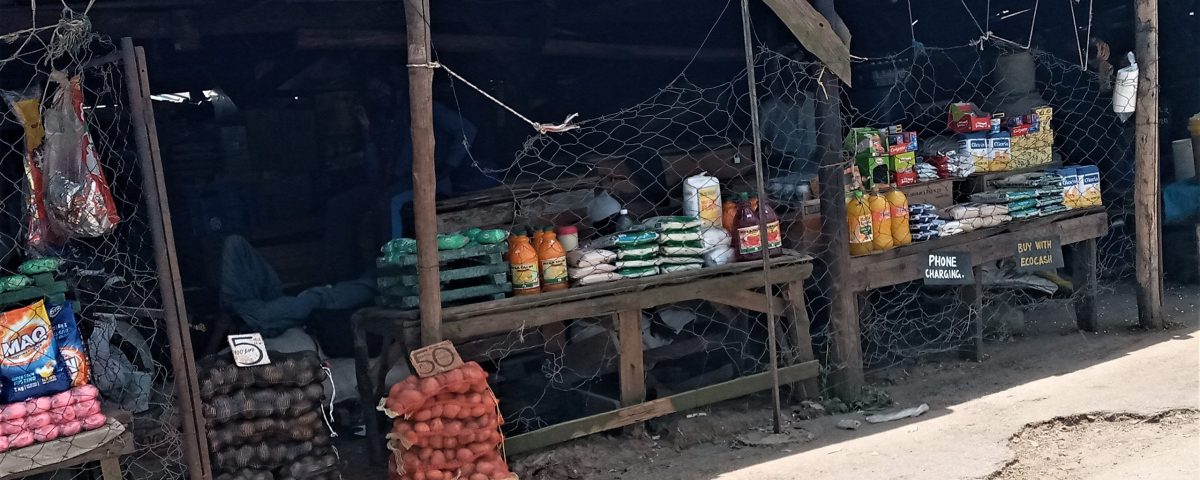
Jah Prayzah litmus test at Montclair Winter Fair, Hotel already fully booked
June 17, 2023
75th grand platinum birthday celebration with a difference held for Mutare real estate magnate Sanhanga
June 29, 2023Lack of confidence, trust stalls informal sector contributions to NSSA

Formalised vending stalls under the City of Mutare at Sakubva Green Market.
Staff Reporter
For many years Andrew Shumba [Not real name] worked as a messenger. His wage came as cash in an envelope and there was no payslip stating how much he earned or whether there were any deductions done. All he knew was what he received on his pay day month end.
At the time, Shumba says he was content with his earnings as he could take care of his family and save a bit of the cash. “I managed to buy a stand and build my house in a high-density suburb, provide food and clothing for my family and keep some savings,” says Shumba.
Shumba who is now in his late 60s says he does not even know if there were pension contributions done or contributions to National Social Security Authority (NSSA) from his earnings.

In Zimbabwe pension benefits are provided through NSSA, the Public Service Commission (PSC) and private pension schemes that are regulated by the Insurance and Pensions Commission (IPEC). NSSA is designed to co-exist with other occupational pension schemes thereby providing a primary safety net to augment the main pension income received from occupational pension schemes.
Upon retirement Shumba started his own small furniture making enterprise. “The money I saved enabled me to start my own company. I worked alone at first then later employed other people as business grew,” says Shumba.
His small business, which is classified as an informal company now has a staff compliment of four people. But like his previous employer, he and his employees do not have any pension scheme they subscribe to or any contributions to NSSA so that they can have safety nets when they retire.
An establishment is considered to be in the informal sector if it is not registered with the Registrar of Companies. Informal employment is also determined by the characteristics of the job a person holds. According NSSA, informal employment includes own account workers and employers employed in their own informal sector enterprises and unpaid contributing family workers irrespective of whether they work in formal or informal sector enterprises. It also includes paid employees not entitled to contribution to the pension fund by the employer, no paid annual leave, no paid sick leave and no written contract with the employer.
However, according to the Pension and Provident Funds Act 3 of 2022, every working Zimbabwean who has attained the age of 16 years and is under the age of 65 years, who is in permanent, seasonal, contract or temporary employment is obligated in terms of Statutory Instrument 393 of 1993 to be a member of the Pension and Other Benefits Scheme (POBS). Though, once an employee attains the age of 65, deduction of contributions ceases even if they continue to work.
POBS is a mandatory contributory scheme financed from equal monthly contributions of 4.5 percent by both employers and employees. It is the employer’s obligation to ensure that contributions are deducted and paid to NSSA before the 1st of each month. This then cushions members and their dependents in the event of the employee’s retirement, invalidity or death.
This is nevertheless sadly not being enforced for domestic employees and those in the informal sector who are currently not covered by POBS.
According to the latest NSSA report, NSSA schemes currently cover only 35 percent of the working population. There are a total of 36 307 employer organisations where active employees are 1 399 777, whilst inactive ones are 1 800 000.

During an online journalists mentorship programme held last month, NSSA research and schemes planning manager, Cosmas Chikwawawa revealed that there are new efforts in progress by Government to formalise the informal sector. “Currently approximately 35 percent of the 4025 million labour force is covered by NSSA with about 65 percent of the population not covered. However, through vision 2030 and Sustainable Development Goal (SDG) 1, the Government remains focused on poverty eradication of which social security is a key tool in achieving this objective,” said Chikwawawa.
He says the focus is to reach data quality levels of 95%, 99% and 99% for contributor, beneficiary and employer data within the next five years.
He added that the International Labour Organisation (ILO) Recommendation 204, which Zimbabwe is a signatory to, recognizes that the high incidence of the informal economy impacts on the rights of workers and provision of decent working conditions. As such, he said globally many countries are working on the extension of social security coverage to the informal sector. “Similarly, our Government has recognized the importance of coverage extension and has mandated NSSA to undertake the development of a unique scheme for the informal sector.”
It is estimated between 85-90% of Zimbabweans are engaged in informal economic activities at a personal, household or enterprise level. The Zimbabwe National Statistics Agency (Zimstat) 2015 report, says 94.5% of the 6.3million people defined as employed are working in the informal economy, which accentuates the large number of people employed in the informal sector.
Adding on the recent ongoing interventions Chikwawawa said NSSA undertook an informal sector coverage extension feasibility study in partnership with the ILO as well as risk assessment with the internal risk unit.
“We conducted research and benchmarking engagements with regional countries on approaches for coverage extension. It is clear we need to prioritise short-term benefits to build trust. We also engaged with Zimbabwe Chamber of Informal Economy Associations to gain an understanding of their needs which provided the database of their members across the country,” he said.
He however said the next step is to undertake the needs assessment survey as strongly recommended in the ILO report, of which Zimstat has already been engaged to assist. “However, due to the financing challenges the authority through our Ministry has reached out to the ILO and SWISS Agency for funding support in the process of engaging other development partners,” said Chikwawawa.

Coffin makers at Murahwa Market in Mutare busy at work to make ends meet.
Shumba says though he is above retirement age, the extension of the scheme to the informal sector would greatly benefit some of his employees. “I have seen people who have become almost destitute after retiring or leaving work because of illness. Having such a monthly contributory scheme will help with such situations because the salaries people are currently getting are not enough for someone to also save for the future,” said Shumba.
Shumba however says he hopes the Government will peg reasonable contributions fees to incentivise those in the informal sector to willingly pay. He said one approach would be contributions that vary according to productive sectors.
Chairperson of the Murahwa Green Market Business Management Association, Ernest Muchakuya says the extension of POBS to the informal sector will be a positive move. “Buy-in is possible, but this is determined by how this is presented to the people in the informal sector.” Muchakuya said there is need for more education and awareness campaigns on the benefits of the programme to the members. “Our members have different levels of literacy, so there is a real need for awareness campaigns on how this will benefit the members,” he says.
The Murahwa Green Market in Mutare houses about 102 enterprises that formally pay rent to the local authority. He however says a one size fits all contribution system for the informal sector may result in low uptake. “They need to come up with a different approach. People may be willing to join but the amount to be contributed may then stop them so maybe looking at it through a case by case approach and see how much those in diverse specific sectors can afford.”
A development economist, Dr Prosper Chitambara says asking the informal sector to contribute to NSSA will face some resistance in the wake of the current inflationary operational environment. “To them it is an added cost which increases their cost of doing business. What is needed is to put some right incentives for businesses to want to formalise. For example, reduce cost of registration, taxation of SMEs, and ensure stability in the macro economy and the usual ease of doing business,” said Dr Chitambara.
He added that Government needs to come up with a formalising strategy which is comprehensive and holistic to address key drivers of informality and implement that inclusively using the bottom-up approach and not think-tank ‘bookish’ strategies.
“Government needs to hear from the people how to address challenges of loss of value due to inflation, how to deal with low confidence due to current and legacy loss of value as well as to facilitate social dialogue on the need for holistic pension reforms and regulation of expenses to protect members,” said Dr Chitambara.


